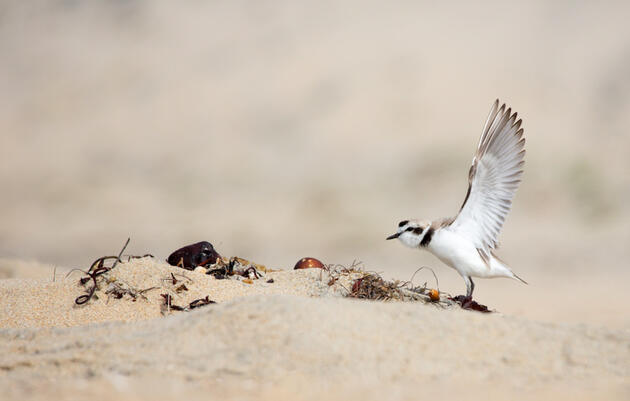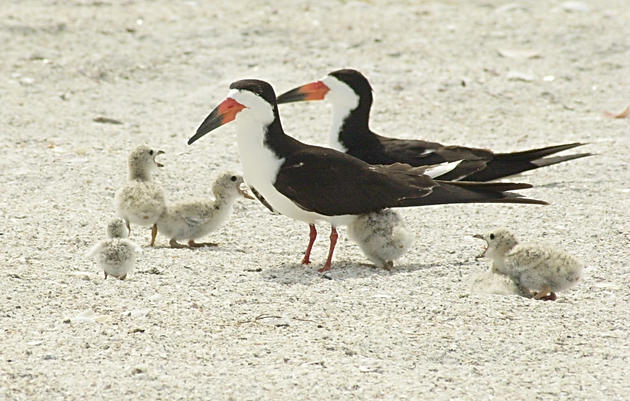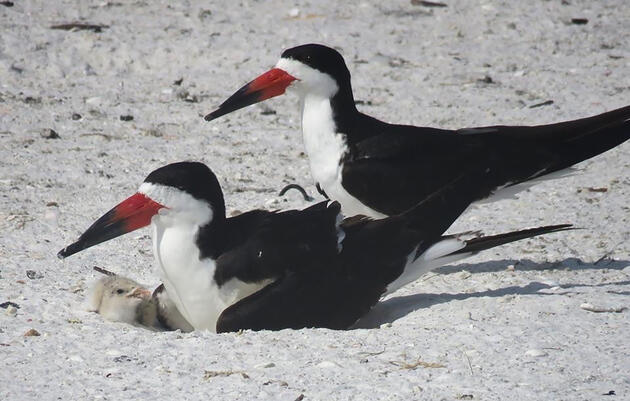Audubon is calling on beachgoers to make beaches safer for birds by avoiding their nesting areas during this busy holiday weekend and throughout the summer.
These special birds lay their eggs right on the sand. They perceive an approaching human as a threat and will take flight whenever people, or their dogs, approach too closely. If disturbed too often, the birds abandon their eggs and nesting sites.
For a quick reference guide to the beach-nesting species, click here.
Over the Memorial Day weekend, Audubon Florida’s bird stewards will be out in full force at locations across the state where people and beach-nesting birds commingle. These important ambassadors for nature help coastal visitors learn about the birds to better understand what is happening inside posted areas.
“Audubon urges beachgoers to be aware of the special birds that share the shore with them this holiday weekend,” says Audrey DeRose-Wilson, Director of Bird Conservation for Audubon Florida. “By following a few simple guidelines, you can keep these feathered families safe.”
To make our beaches safer for birds:
- Give nesting birds as much space as possible. Signs or people will alert you to these areas, but some birds haven’t settled down to start nesting yet and may just look like they are resting in the sand.
- Avoid walking through flocks of birds.
- If pets are permitted on beaches, keep them leashed and well away from birds.
- Remove trash and food scraps, which attract predators that will also eat birds’ eggs and/or chicks.
- Do not drive on beach dunes or other nesting areas.
Audubon protects birds and the places they need, today and tomorrow. Audubon works throughout the Americas using science, advocacy, education, and on-the-ground conservation. State programs, nature centers, chapters, and partners give Audubon an unparalleled wingspan that reaches millions of people each year to inform, inspire, and unite diverse communities in conservation action. A nonprofit conservation organization since 1900, Audubon believes in a world in which people and wildlife thrive.






